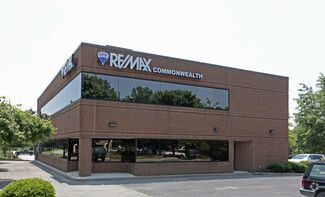Business Owner Trusts
Understanding
Business Owner Trusts
Protecting and Transferring Business Ownership
A Business Owner Trust is a type of trust specifically designed for individuals who own and operate a business. It allows business owners to transfer the ownership and management of their business to a trust, ensuring that the business is protected, continues to thrive, and is seamlessly passed on to future generations or designated beneficiaries. At [Your Law Firm Name], we help business owners create and manage trusts that align with their estate planning goals while ensuring the long-term success and stability of their businesses.
What is a Business Owner Trust?
A business owner trust is a legal arrangement in which the business owner transfers ownership of their business interests into an irrevocable trust. The trust becomes the legal owner of the business, and the trustee (who may be the business owner themselves or someone else) manages the business in accordance with the terms of the trust. This setup offers multiple benefits, such as business continuity, asset protection, and smoother transitions in the event of death, disability, or retirement.
Business owner trusts can be used for a variety of business structures, including sole proprietorships, partnerships, LLCs, and corporations. The trust can hold various business assets, such as shares of stock, real estate, equipment, and intellectual property.
How Business Owner Trusts Work
Irrevocable Nature: A business owner trust is typically irrevocable, meaning once the business owner transfers their ownership interests into the trust, they cannot reclaim them. This ensures the business will be protected from creditors and estate taxes, and it simplifies the transfer of ownership to heirs or beneficiaries.
Trustee: The trustee is responsible for managing the business and making decisions related to its operation, investment, and distribution of profits. The trustee can be the business owner themselves, a family member, a trusted advisor, or a professional fiduciary. A successor trustee can be named to take over the management of the business in the event the original trustee is no longer able to do so.
Beneficiaries: The beneficiaries of a business owner trust can include the business owner’s family members, employees, partners, or other designated individuals or entities. Beneficiaries are entitled to receive the profits from the business or a portion of the business’s assets according to the terms of the trust.
Business Succession Planning: A key feature of a business owner trust is its role in business succession planning. The trust allows the business owner to plan for the future of the business, whether they want to pass it down to family members, sell it, or distribute ownership among a group of individuals or entities. It can also ensure that a business continues to operate smoothly in the event of the owner’s incapacity or death.
Asset Protection: One of the main reasons business owners choose to establish a trust is to protect the business assets from personal liabilities. By transferring business ownership into the trust, the business is shielded from creditors, lawsuits, and other legal risks that may impact the business owner personally.
Tax Planning: A business owner trust can help minimize estate and gift taxes by transferring business interests to heirs or beneficiaries in a tax-advantaged manner. The trust may also be structured to take advantage of certain tax exemptions, such as the generation-skipping transfer (GST) tax exemption or gift tax exclusions.
Key Benefits of Business Owner Trusts
Business Continuity
- One of the primary advantages of a business owner trust is that it ensures continuity of the business after the owner’s death, incapacity, or retirement. By transferring ownership to a trust, the business remains operational and is not subject to disruption or forced liquidation, providing stability for employees and clients.
Seamless Succession Planning
- A business owner trust facilitates a smooth transition of ownership, which is particularly important for family-owned businesses. The trust can specify how the business will be managed and transferred to heirs or other beneficiaries, reducing the likelihood of disputes or confusion among family members or business partners.
Asset Protection
- By placing the business interests in an irrevocable trust, the assets of the business are shielded from creditors, legal claims, or divorce settlements. This protection ensures that the business is preserved and that future generations can continue operating it without interference.
Avoiding Probate
- Since a business owner trust is an irrevocable trust, the business and its assets are not subject to probate upon the owner’s death. This means that the business can be transferred to beneficiaries without the delays and expenses associated with the probate process, ensuring that the business continues without disruption.
Tax Benefits
- Business owner trusts offer opportunities for significant tax savings. The trust can be structured in a way that reduces estate taxes, gift taxes, and capital gains taxes, potentially saving the business owner and their family substantial amounts of money. Additionally, the trust can help manage income distribution in a tax-efficient way.
Flexibility in Ownership Structure
- A business owner trust allows for flexibility in how business interests are distributed among beneficiaries. The trust can specify whether the business is to be divided equally, sold, or transferred to specific individuals. This gives the business owner the ability to control the fate of their business long after they are gone.
Protection Against Family Disputes
- For family-owned businesses, a business owner trust can help minimize conflicts over ownership and management. By clearly defining the roles of beneficiaries and the management structure of the business, the trust helps ensure that the business is run according to the owner’s wishes.
Types of Business Owner Trusts
There are several types of trusts that business owners can use, depending on their goals and the structure of their business:
Revocable Trust:
- A revocable trust allows the business owner to retain control over the assets during their lifetime and make changes to the trust as needed. However, it does not provide the same level of asset protection as an irrevocable trust.
Irrevocable Trust:
- An irrevocable trust removes the business interests from the business owner’s estate, providing strong asset protection and tax benefits. Once assets are transferred into the trust, the owner cannot change the terms of the trust.
Living Trust:
- A living trust is created during the business owner’s lifetime and allows the trust to take effect immediately. It is often used for estate planning purposes and can be either revocable or irrevocable.
Testamentary Trust:
- A testamentary trust is established upon the death of the business owner and is typically used as part of the owner’s will. It can specify how business interests are to be handled after the business owner’s death.
How to Set Up a Business Owner Trust
- Consult with Professionals: The first step in setting up a business owner trust is to work with an attorney, tax advisor, and financial planner who specialize in estate planning and business law. These professionals will help you determine the best type of trust for your business and personal needs.
- Choose a Trustee: The trustee is responsible for managing the business and ensuring that the terms of the trust are carried out. The trustee can be a family member, a business partner, or a professional fiduciary.
- Draft the Trust Agreement: The trust agreement will outline the terms and conditions of the trust, including how the business is to be managed, how ownership interests will be transferred, and how the assets will be distributed to beneficiaries.
- Transfer Business Assets into the Trust: Once the trust is established, the business owner will transfer ownership of their business interests into the trust. This may involve changing the title of business assets, such as real estate, stock shares, or intellectual property.
- Review and Update the Trust: It’s important to regularly review and update the trust to ensure it remains in line with the business owner’s goals and any changes in tax laws, family dynamics, or business circumstances.
Why You Need a Business Owner Trust
If you are a business owner, a trust is a powerful tool to protect your business, plan for its future, and ensure that it is passed down smoothly to the next generation or other beneficiaries. A business owner trust provides continuity, asset protection, tax benefits, and a clear plan for succession, making it an essential part of comprehensive estate and business planning.
Why Choose SMITH | ASHCRAFT
At SMITH | ASHCRAFT, we specialize in creating business owner trusts that help preserve your legacy, protect your assets, and ensure the future of your business. Our experienced attorneys will work with you to design a trust that aligns with your goals and ensures a seamless transition of ownership for your business.
Contact us today to learn how a business owner trust can provide security and stability for your business and your family’s future.
Helpful Articles
What Our Clients Have To Say
Learn More About Estate Planning
- Special Needs Trusts
- Pet Trusts
- Spendthrift Trusts
- Charitable Trusts
- Life Insurance Trusts
- Dynasty Trusts
- Business Owner Trusts
- Gun Trusts
There's no where in Virginia that we don’t know
At SMITH | ASHCRAFT, we are proud to offer comprehensive legal services throughout Virginia. Whether you’re in Richmond, Northern Virginia, the far reaches of Roanoke, or any other part of the state, our experienced team is here to provide experienced representation tailored to your unique needs. No matter where you are in Virginia, we’re committed to delivering the same high level of service and dedication to each client, ensuring your case receives the attention it deserves.
Contact Us









